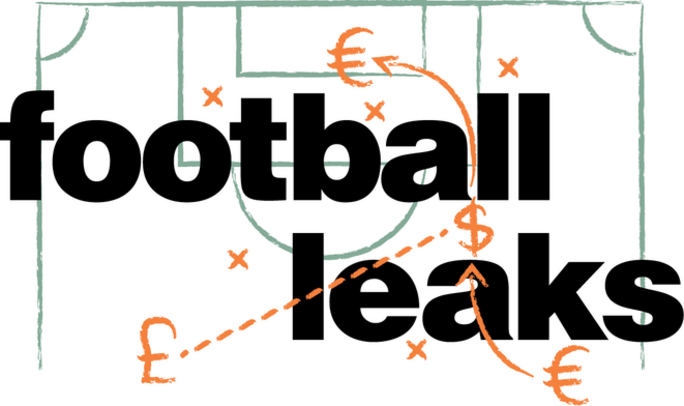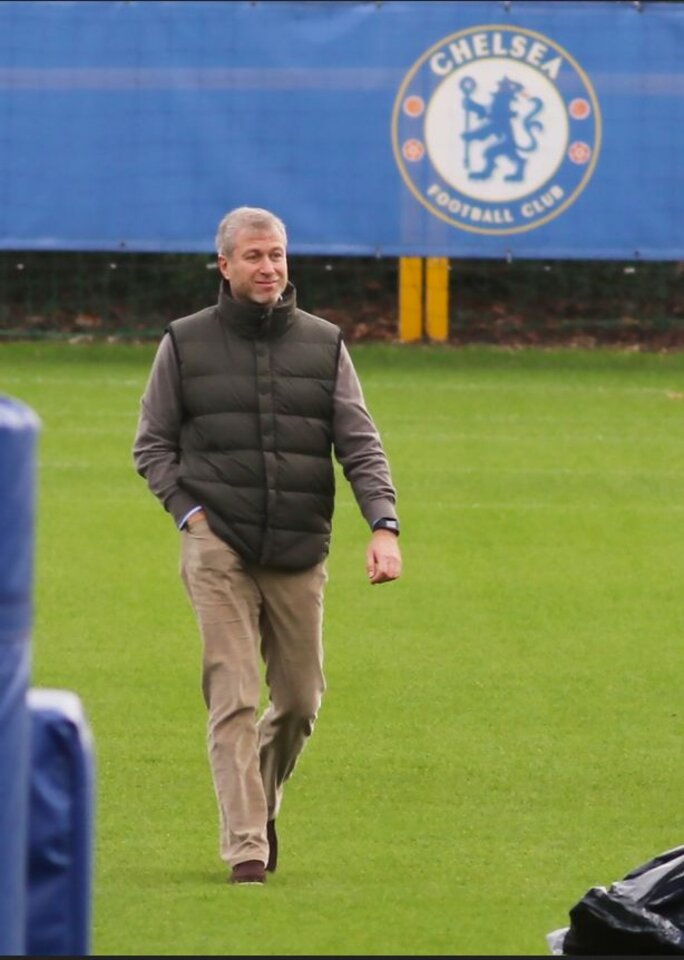In the giddy world of modern football, a European club’s debts can end up for sale on the stock exchange of the Cayman Islands. The startling practices of financiers seeking new ways of profiting from “the beautiful game” are illustrated by the case of French midfielder Gilbert Imbula.
In June 2015, Imbula was sold to Portuguese club FC Porto by French side Olympique de Marseille for 20 million euros, payable in several instalments. But when Marseille did not receive the first payment on the date it was due, it sold its debt security from Porto, worth 9.65 million euros, to a British firm called XXIII Capital - which then dealt directly with Porto to recover the sum. The advantage for Marseille was, of course, to be paid the fee immediately, minus a commission.
The operation was far from an isolated event. By the end of 2015, XXIII Capital held 73 million dollars in debt security from transfer deals involving clubs in England France, Italy, Spain and Portugal. The company used the debt securities to create a financial product known as asset-backed securities, or ABS, which uses assets as collateral.

Enlargement : Illustration 1

The British company commercialized the debt from European clubs on Wall Street in January 2016, but the offer found little favour among investors in the US. Three months later, XXIII Capital offered the debt on the stock exchange of the Cayman Islands, the British overseas territory and tax haven in the Caribbean.
Until last year, cash-strapped clubs could sell stakes in their players to investment funds and individuals. The system is known as Third-Party Ownership (TPO), whereby an individual or a company buys up a percentage of a football player’s economic rights, for which the investor receives a proportionate payment from the player’s future transfer fee. The practice was banned by world football’s governing body Fifa in May 2015.
But the ban left the field wide open for financiers eyeing new business opportunities, and XXIII Capital is one of the major players in the new trade. Questioned by Mediapart via email, one of its directors and founders, Jason Traub, insisted that there was no reason to be suspicious of the ‘soccer bonds’ business. “It is done in a very transparent way, it's in the public domain,” he said. “This is just another way to raise money." Indeed, XXIII Capital’s bonds were given an “A” rating by US credit rating agency KBRA in January this year.

Enlargement : Illustration 2

XXIII Capital produces a brochure entitled “Football Finance” in which it explains that it finances debt in the sport, music and entertainment sectors, and boasts a treasury of 500 million pounds (about 600 million euros). It assures clients that, unlike firms which speculate on making a swift, opportunistic profit, XXIII is in the business of long-term investments.
Ever since the ban placed on TPO deals, financial operators have been forced to tread carefully. XXIII Capital might lend a club 40 million euros, calculated against a team’s value and later remunerated through the sale of players, but the company insists it is not buying stakes in players and is abiding by the rules.
XXIII Capital offers other services, notably concerning transfer deals like that between Porto and Marseille. It is an increasingly attractive prospect for clubs given that very often the payment for a payer is otherwise staggered over several years. The firm can also finance the purchase of a player by conditioning the loan to future revenues he brings in, such as with audiovisual rights, sponsorship deals and ticket sales. It also proposes funds for projects such as expanding a stadium, and even for the purchase of a club.
Concerning the financing behind player transfers, Jason Traub told Mediapart by email: "We would stress however that in every circumstance, XXIII would perform significant due diligence to ensure that the respective transfer contract has been registered appropriately with FIFA alongside the respective Associations, and that it is fully compliant with all rules and regulations.”
“We have no role (past/present or future) in the commercial basis of the underlying player transfer (in fact in most instances we are asked to finance transfers already completed in the previous transfer windows), and work only with the Club board. We would have no relationship with agents or players in this regard."
XXIII Capital is not the only company involved in the business. When Porto sold its Uruguyan left back Alvaro Pereira to Inter Milan in August 2012 for 10 million euros, it was to receive 3 million euros within days of the deal being concluded, but the remainder was to be paid in three installments ending on January 2014. Porto contacted German bank Internationales Bankhaus Bodensee AG (IBB) to ask if it would be interested in buying up the credit and if so on what conditions. “This payment have [sic] bank guarantees so we think it’s a good credit,” Porto wrote to the bank. “Do you think that IBB is interested in discounting this amounts? In what conditions (rate)? We need a urgent answer."
Occasionally, the financing operations involve more audacious projects. In a document dated April 24th 2015 and entitled “David Beckham Presentation”, XXIII Capital details its plan to obtain the rights for ticket sales of 13,000 seats at London’s Wembley Stadium for a six-year period beginning in 2017. To promote the project, the company hoped to convince retired football star David Beckham, UNICEF “Goodwill Ambassador”, to lead an all-star line up of players at a charity match at the stadium in support of the United Nations children’s fund. All the revenue above 3 million dollars that came from the ticket sales would be handed over to “DB/Unicef”.
Jason Traub told Mediapart that the project with Beckham was not concluded, but he refused to say whether XXIII Capital had obtained the rights for the 13,000 ticket sales. He added that European clubs were behind their US counterparts in adopting methods to make ticket sales more profitable, which XXIII Capital could provide “help” with.
Sports financing is a competitive business. In August 2015, Henk Hoekstra, one of the directors of XXIII Capital, contacted Portuguese club Sporting regarding the transfer to English Premier League club Southampton of defender Cédric Soares. "We are a very serious and experienced partner in football finance,” wrote Hoekstra. “We know you will be approached by several runners in this business but our company is different because we work straight with the clubs,” he told Sporting. “We are only lenders,” he insisted, vaunting the company’s “innovative solutions” that were “TPO-proof”. Differentiating himself from money-hungry brokers, Hoekstra explained that he had been chief financial officer for Dutch club SC Heerenveen for a period of 22 years, and had also been a “member of the finance advisory group of the Dutch FA”, adding that his company had in recent months concluded deals with three clubs in southern Europe worth more than 30 million euros.
Two weeks later, XXIII Capital got back in touch with Sporting with an offer to provide the sums that remained to be paid by Southampton for Soares. Sporting was to receive from Southampton a remaining sum of 4 million euros for the transfer, staggered over three instalments ending in January 2017. XXIII Capital offered to immediately pay Sporting a total of 3,741,100 euros, in exchange for a commission of 258,900 euros (the two sums totalling 4 million euros).
Sporting subsequently replied, "We haven’t take a final decision yet". Just a few weeks earlier the Lisbon club had received a more competitive offer for the same services from one of XXIII Capital’s rivals, Close Brothers Limited, whose commission was 239,703 euros – a saving of 19,000 euros on that of XXIII Capital. Jason Traub confirmed to Mediapart that the deal fell through. "XXIII did not provide any financing” he said of the sale to Southampton of Soares.
A majority of European clubs and leagues have shaky finances
In February 2014, Close Brothers contacted Spanish club Sevilla with a presentation of its experience in funding clubs. “We are approved by the Premier League and acknowledged by the FA as a funder in this sector having completed over 100 UK to UK funding agreements," it claimed.
In June 2014, a lawyer promoting the services of Close Brothers contacted one of his colleagues in Madrid, a lawyer with significant influence in the world of football financing in Spain, in which he wrote of Close Brothers’ “ongoing appetite to be involved in working with Spanish clubs on suitable player transfer funding arrangements." He referred to the keenness of Close Brothers to “keep the ball rolling where possible”, and suggested that the Madrid lawyer might contact Atlético Madrid, a club known to have funding problems.
The field of football has become crowded with companies like XXIII Capital and Close Brothers. They occasionally meet together for conferences, such as one organised by the Football Finance Group on September 25th 2014 at the Sky Pavilion on top of the Rothschild Bank’s London headquarters. The theme was “Financing Fair Play”, in a reference to the “Financial Fair Play” programme of European football governing body UEFA to eradicate unsustainable debt among clubs, a somewhat incongruous event given the interests of the assembled financiers.

Enlargement : Illustration 3

In his presentation to the conference, the head of the Football Finance Group, banker Richard Harris, an influential deal-maker in the world of English football who has been involved as an advisor in a number of club takeovers, including that of Chelsea in 2003 by Roman Abramovich, spoke of how “the continued growth of the discipline and organisation creates ever more attractive financing opportunities”. Harris explained that “the management of unpredictable, substantial cash flows, is of paramount importance”. Which is how the market for advancing the funds of transfer deal payments, via “asset-backed securities”, has opened up.
A director of Close Brothers told the conference that one of its new business targets was the funding of broadcasting rights, while also underlining that the company was “established in 1878 and today employs over 2,500 people” and which, as Close Brothers Group, “is listed on the London Stock Exchange”.
Also present was Richard Price, managing director of New Century Finance Limited (NCF) who said that “banks traditionally viewed football as high-risk”, but that “to date none of NCF’s funders have suffered any loss". (More recently, NCF’s website published a statement that the company “had a record year ending 31st August 16. We completed over £100m of funding for both PL & EFL football clubs” which was “secured on either transfer or broadcasting monies receivables”).
Another of the discussion themes at the conference was “Third-Party Ownership and alternative financing”. The financial companies are convinced that despite the Fifa ban on TPO deals, there remains other opportunities for profit.
André Soulier is president of the legal affairs commission of France’s Professional Football League (LFP), the governing body of the major French football leagues. In a report presented to the LFP in April this year, he argued that the May 2015 Fifa ban on Third-Party Ownership (TPO) “is not as clear cut as was thought”, and that there was “a gap which leaves the possibility for some third parties to continue”, adding that the Fifa TPO ban “does not close the door” on Third-Party Investment (TPI), a variant of the system.
In his written reply to Mediapart’s questions, Jason Traub said that "given the opaque nature of TPO/TPI, the nature of the investments (i.e. sporting persons), the inherent misalignment with the integrity of the sporting competition, and the general potential for abuse, we are fully supportive of the ban", insisting that XXIII Capital had no involvement in TPO or TPI deals. Meanwhile, the company eyes the business opportunities with clubs as they seek to end their dependence on TPO and TPI deals over the one-year transition period allowed by Fifa.
In his conclusions, Soulier underlined that clubs can still receive funding from financiers if the latter “limit themselves to an activity that is strictly of a banking nature (the repayment of the amount loaned plus interest, transfer of receivables)”. Thus, as long as a lender does not force a club to sell a player, the system is accepted.
The clubs and financiers hope to make the best of this fine line despite the shaky economic environment for clubs. In a study by Harvard University’s Kennedy School, published in March 2016 and entitled Off-Pitch: Football’s Financial Integrity, Weaknesses and How to Strengthen Them, the authors estimated that “up to 75% of Europe’s clubs and leagues face high levels of financial sustainability risk”. In short, three-quarters of European clubs have difficulty meeting the increasing salaries and transfer fees of players, juggling with loses and debts. The Harvard study concluded that “insolvency is an endemic problem in the professional game of football and most clubs would not survive in a normal market sector”. It found that about 90% of the clubs do not publish their financial accounts, and that the opacity surrounding their finances heightens the risk of malpractices over which neither Fifa, the European football governing body UEFA, nor national football authorities exercise sufficient control.
France’s Professional Football League announced earlier this year that in the 2014-2015 season (which provides the latest available figures) the 40 clubs that make up the two top-flight divisions, League 1 and League 2, had reduced their combined debts by 67 million euros, representing 30% less combined debt than at the end of the preceding season. The losses written off by those clubs’ shareholders – without which many would be declared bankrupt – had also shrunk in the 2014-2015 season, down from 125 million euros in 2013-2014, to 21 million euros. But that does not mean that the game’s structural financial problems have recovered. It is more a relative calm, helped by the fact that two of the three dominant clubs, Paris Saint-Germain and Monaco, have, respectively, wealthy Qatari and Russian shareholders who are able to make up for financial shortcomings.
But the credit tap can be suddenly switched off. French daily Libération reported in May that a number of banks had momentarily refused to provide end-of-season loans to French clubs which were used receiving credit to pay annual bonuses to players and to build a war chest for the summer transfer market. But while that underlines the dangers for clubs to saddle themselves with increasing debt in a fragile economic environment, it is likely to push them further into the arms of the financiers waving their cheque books on the side of the pitch.
-------------------------
- This article in English is based on Mediapart's original report in French, which can be found here.


